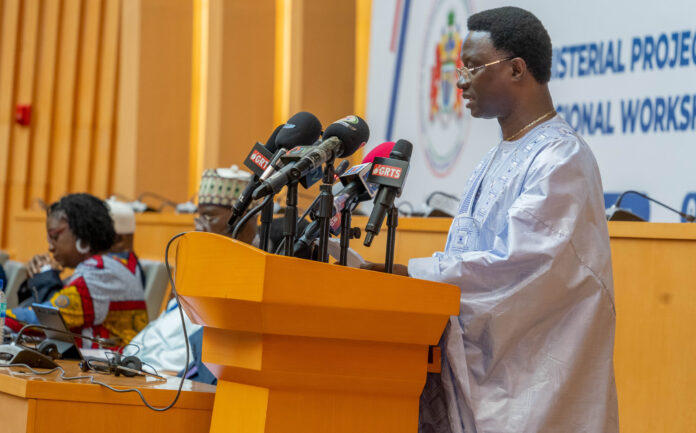One of the notable addresses delivered by renowned Nigerian author, Chimamanda Ngozi, is her impactful speech, “The Danger of a Single Story.” Through a TED talk, she skillfully depicts the imbalanced and narrow narrative that hinders our perception of the broader, more illuminated perspective. Additionally, she emphasizes how this limited viewpoint can readily give rise to detrimental stereotypes and the significant repercussions they entail.
In the realm of the digital landscape, a singular narrative can manifest in various ways, encompassing a spy device, an oppressive policy, malware, or even a stereotypical viewpoint directed at any young individual observed carrying a laptop and other advanced IT gadgets.
For the residents of The Gambia, Africa’s smallest landlocked nation, the singular story unfolds as a sole internet service provider, one that is state-owned. The National Broadband Network (NBN) in the country facilitates broadband access through the Gambia Telecommunications Company Limited (Gamtel) and a Huawei project initiated three years ago.
As per the Londa report, by the conclusion of 2021, an alternative backup was introduced to the Africa Coast to Europe (ACE) Cable. This initiative aimed to ensure that at least 75 percent of households could access affordable high-speed internet connectivity by 2022, representing just one among several efforts dedicated to improving the situation.
However, it’s crucial to recognize that actions speak louder than words. Between 2021 and 2022, The Gambia experienced a minimum of six internet outages due to technical disruptions caused by various factors. These factors encompassed incidents such as the cutting of broadband cables during road construction projects, interruptions caused by the sun affecting submarine cables when ships brushed against them, and the absence of backup submarine cables to reduce dependence on the ACE Submarine cable.
Another challenge identified in the country’s digital landscape, as highlighted by Londa, is the excessively high cost of mobile data. The report suggests that addressing this issue, along with tackling internet disruptions, would be advantageous with the introduction of a second submarine cable through the Western African Digital Integration Project, funded by the World Bank.
The Gambia is one of the smallest and most densely populated countries in Africa, with about 10.7 thousand square kilometers and 2.5 million people.
The country is two years shy of celebrating its 60th year of independence. This gravitation towards the landmark is one many Gambians look forward to with excitement despite the impediments and bottlenecks obstructing a smooth digital acceleration.
The nation runs an ICT for Development (ICT4D) Policy with the aim of facilitating the process of transforming The Gambia into a predominantly information-rich and knowledge-based society and economy.
This falls under key areas of its advanced Broadband ICT Infrastructure Development Plan. The plan and other measures, including the Universal Access Fund (UAF) policy meant to address rural connectivity for the majority of Gambians in rural areas.
Going by the Londa report, the Information Communication Act of 2009 under review has to be completed on time to make Gambians feel safe from the danger of draconian laws that can hinder free speech, promote openness, and, above all, that citizens can use the internet safely and securely.
Lofty as this sounds, the taste of the pudding remains in the eating. The country’s uncanny political past cannot just be discarded.
While progress on the ground should be appreciated, the future remains the best judge.
Africa and the world are watching, curious and excited at the prospects of having The Gambia tell its single story in a way most representative of its people.





